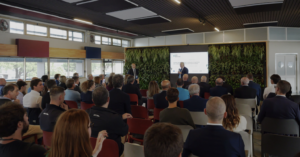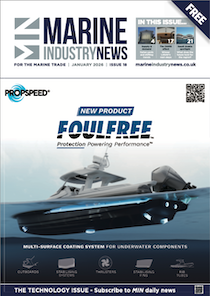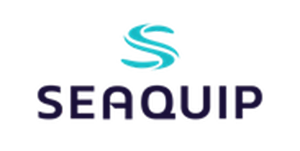Vendée skippers to become citizen scientists as they circumnavigate the globe
 Manuel Cousin. Image courtesy of VG media.
Manuel Cousin. Image courtesy of VG media.
Twenty five sailors have volunteered to take weather-marine measuring instruments onboard their IMOCA yachts during the Vendée Globe 2024.
The skippers will enable the collection and distribution of essential data to scientists in real time. Those scientists are looking to expand global knowledge of climate and the ocean, and seeking to improve operational weather forecasting services, particularly in the less frequented areas of the globe such as from the Big South, the remote Southern Ocean.
Several types of instruments are being utilised such as surface buoys, weather stations, autonomous Argo subsurface profiling floats, educational buoys (Calitoo) and thermosalinographs.
The data collected during and after the race, as well as the buoys deployed, will feed the Global Ocean Observing System (GOOS) which is coordinated by UNESCO.
The skippers will receive and be trained in the use of the instruments on October 22 and 23, in Les Sables d’Olonne.
“To protect the ocean better, we must also know it better,” says Audrey Azoulay, director-general of UNESCO. “I salute the commitment of the Vendée Globe, the IMOCA Class and the skippers alongside UNESCO to advance oceanographic research by integrating these instruments on board their sailboats. This project illustrates the tremendous potential for cooperation between the worlds of sport and science.
“Sailors are not just users of the sea. They are above all passionate individuals and fervent defenders of this environment. Competitive sailors are formidable allies for scientists working to better understand and protect the ocean. UNESCO is very proud to build a bridge between these two worlds, that of sailing and that of research, through this new partnership forged with the Vendée Globe.”
For nearly 10 years, many Vendée Globe skippers have supported citizen science by carrying or deploying various scientific instruments, particularly in the context of the partnership between UNESCO and the IMOCA Sailing Class.

This year the scientific equipment is provided by a number of institutes sharing the same vision, stakeholders of GOOS: Ifremer, Météo France, UK MetOffice, CNES, GEOMAR, CLS, the TARA Fondation, and ETH Zurich. The technical coordination of all these instruments and operations will be ensured by the UNESCO International Centre of Excellence for the Coordination and Monitoring of Meteorological and Oceanographic Observing Systems (OceanOPS).
In line with the environmental commitments made by the Vendée Globe to UNESCO, taking such scientific equipment will be made mandatory for all competitors in the rules of the race from the 2028 edition.
“Last February, we presented our ten ambitious environmental commitments in partnership with UNESCO,” explains Alain Leboeuf, president of the Vendée Globe. “It is important to us that this is now rolled out by real actions such as the embarkation of these measuring devices during the race thanks to the support of many partners. This is a strong gesture from these 25 skippers who are contributing to advancing scientific knowledge about our ocean and thus helping to protect it better.”
The 25 skippers who are taking on measuring instruments are:
- Denis Van Weynbergh (Weather Buoy)
- Fabrice Amedeo (OceanPack + Argo Float)
- Yoann Richomme (Argo Float + ARGOS Marget II)
- Louis Duc (Weather Buoy)
- Manuel Cousin (Weather Buoy)
- Louis Burton (Calitoo)
- Jingkun Xu (Argo Float)
- Oliver Heer (OceanPack + Argo Float)
- Antoine Cornic (TSG Gaillard + Weather Buoy + Weather Station)
- Tanguy Le Turquais (Weather Station)
- Kojiro Shiraishi (Argo Float)
- Sam Goodchild (Argo Float + Calitoo)
- Sébastien Marsset (Weather Station + Argo Float)
- Romain Attanasio (TSG Gaillard + Weather Buoy)
- Boris Herrmann (OceanPack + Weather Buoy)
- Guirec Soudée (Argo Float)
- Maxime Sorel (Argo Float)
- Szabi Weores (Argo Float + Weather Station)
- Arnaud Boissières (Weather Buoy + Calitoo)
- Sam Davies (Calitoo)
- Pip Hare (Calitoo)
- Paul Meilhat (Planctoscope)
- Nicolas Lunven (OceanPack)
- Benjamin Dutreux (Weather Station)
- Clarisse Crémer (Weather Buoy)
“It is a real achievement to see so many sailors involved in this collaborative project that the IMOCA Class has been proudly carrying out since 2018,” says Claire Vayer, co-responsible for sustainability, IMOCA Class. “After nearly five years of work with all the scientific partners, it is gratifying and encouraging to see how essential the contribution of sailors is to science today. As soon as the Vendée Globe project was announced, many sailors offered their contribution. A record number of scientific instruments will be on board, thus placing science at the heart of our sporting challenges.”












